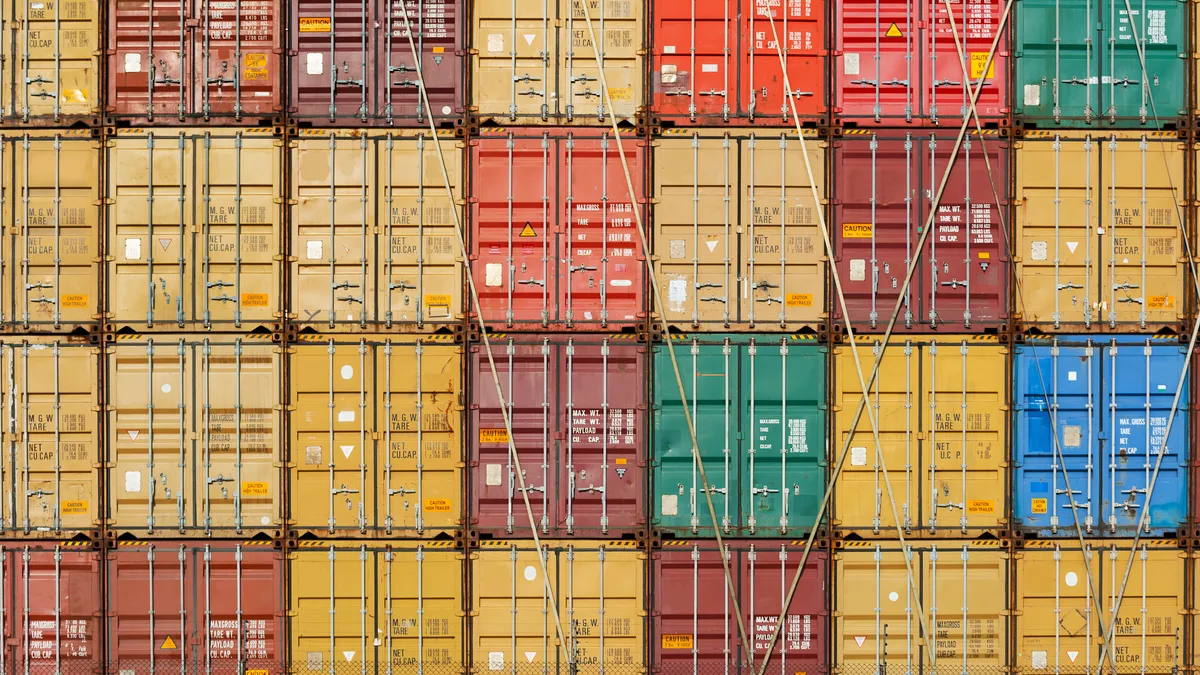Dive Brief:
- The imposition of "emergency fuel surcharges" by ocean carriers has created a crisis point in the industry, as shippers decry "cartel era" policies and carriers defend their right to mitigate costs, Drewry Maritime Consultants wrote in their latest Container Insight Weekly.
- Chris Welsh, secretary general of the Global Shippers Forum, said in the weekly, "containership operators need to 'fess-up'" and take responsibility of their own costs rather than rely on "vaguely explained short-notice unrecoverable surcharge costs on customers."
- Drewry agreed with the statement, demanding a "better pricing system," but also noted carriers are suffering from a 20% rise in fuel costs since the start of the year and a downward trend in spot rates on East-West trades.
Dive Insight:
Nearly every major ocean carrier has levied an emergency fee to cover rising operating costs.
The fees are set to enter force as late as July 1 on all trades, and as early as June 1 for non-Federal Maritime Commission (FMC) regulated trades, with no set expiry date.
"This is a necessary action to ensure a continued sustainable service to our customers," Maersk Line wrote in its advisory announcing a new fee. "The emergency charge level will be reviewed as and when significant increase or reduction of key shipping cost elements occurs."
The exact trades, dates and surcharge details vary per carrier, leaving shippers navigating a maze of cost differentials. Large shippers are often shielded by dedicated contracts, but smaller shippers relying on freight forwarders or spot rates are likely to see a significant bump in costs, JOC.com reports.
It is no surprise shippers are accusing carriers of "cartel era" policies. An industry-wide increase in costs, with short notice and no end in sight, appears like a way to artificially inflate rates.
Despite protests, however, carriers appear steadfast in their decision to levy new fees.
"Looking at the SCFI spot rate data from the Shanghai Shipping Exchange, one can only conclude that the carriers appear to have won the initial battle for the Emergency Bunker Surcharge," Lars Jensen, CEO of SeaIntelligence, wrote in a LinkedIn analysis.
Spot rates on Asia-Europe trades, which are subject to fuel surcharges as of June 1, nearly rose to match the new fees in the last week of May, according to Jensen. This indicates "a strong momentum toward the EBS implementation."
Drewry argues the current pricing system is riddled with problems, stemming from a lack of transparency and carriers' seeming inability to keep costs down. A new system, the analysis concludes, is long overdue.
"For many of us, fixing a nagging problem is often left to the last minute when matters reach crisis point," Drewry said in its recent weekly analysis. "Container shipping, it seems, shares this affliction."
But, the research firm writes, "where were the calls for transparency when fuel prices were low?"














